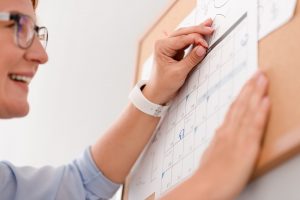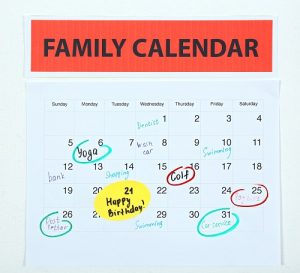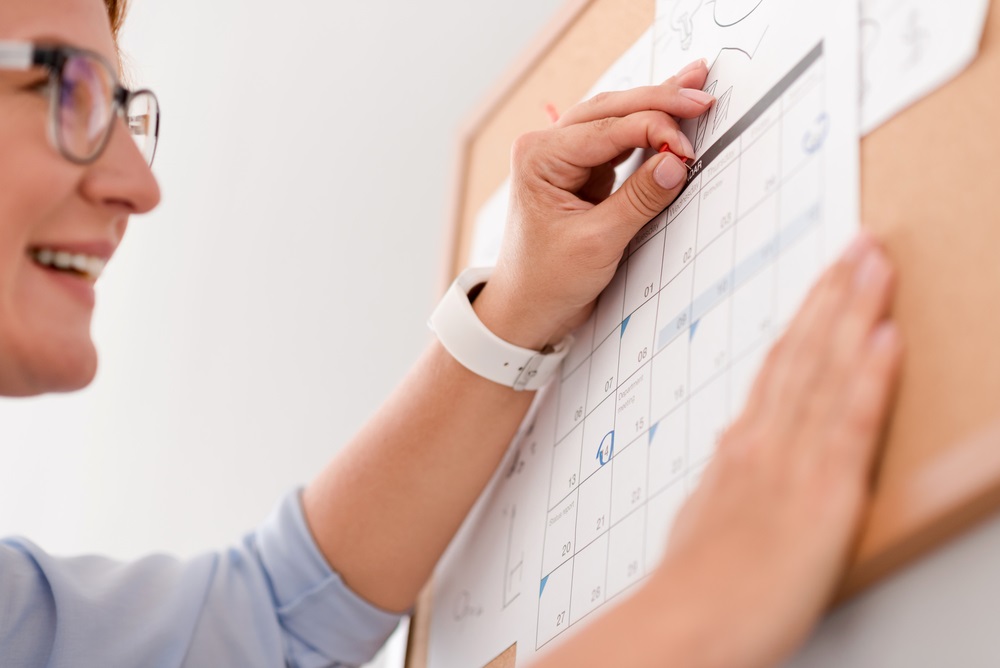Contents
Keeping Track of the Day, Time, Events

Time, Day, birthdays, anniversaries…we tend to live by our clock and calendar. People with weekday jobs look forward to weekends off while following a weekday routine. Nighttime workers find their days and nights twisted, but most learn to adjust. School children embrace their routines that allow time for weekends off and for most, summers, too.

After living by clocks and calendars most of our lives, the adjustment to retirement often challenges even the more carefree. Some take up a new hobby that meets at regular times. For my Mom, that meant she could join more bowling leagues. Bowling leagues defined her days and times, much like a job.
However, many elderly find themselves without a schedule after retirement, especially those with physical or mental challenges. Dementia creates yet another level of detachment from time and day tracking. While advanced dementia patients are not usually as affected, early and mid-stage patients often display frustration at attempting to track time.

Often, elderly men and women eagerly await doctor’s appointments, shopping days, and even garbage collection days. The combination of needing some schedule to follow, along with seeking activity, keeps them looking forward to each small event.
Time, Day Tracking Simplified
While it is not always possible to solve the time, day, event tracking issue, some solutions appear to help. Many of us are now using computer calendars. Our senior parents often find a large wall calendar much more useful. Hang it in a visible area. Write appointments, birthdays, anniversaries, and other dates. You might also list regularly occurring events such as church service. Include start times, even if they are always the same. Small visuals, such as a picture or special color add to the readability.
This might be a good time to invest in a digital clock with large letters and numbers. A favorite in our home is the Robin 2020 clock. The letters and numbers show well from anywhere in the room, however, it is not so bright as to disturb sleep.
Even with these aids, our seniors often need reminding of the day and time, especially if affected by moderate dementia. However, pointing to the clock or calendar helps when reminding.
You’ve Got Mail!
Moreover, you may help your parent remember the dates and feel engaged by combining this with mail. Keep a few cards available and help Mom or Dad to send birthday and anniversary cards to family and friends. The few minutes this takes builds an enormous amount of self-worth in parents struggling to feel attached to their world.
Reminders and discussions about the day, upcoming events later in the week, and special days coming up enable our seniors to stay current. These reminders also help keep their brain active and may help delay some dementia symptoms. Share your events with your parents!
This page contains AFFILIATE LINKS. When you click on these and purchase a product, I receive a small commission. Your cost is unaffected. You are not required to use these links, but they do help support this website. Thank you!





